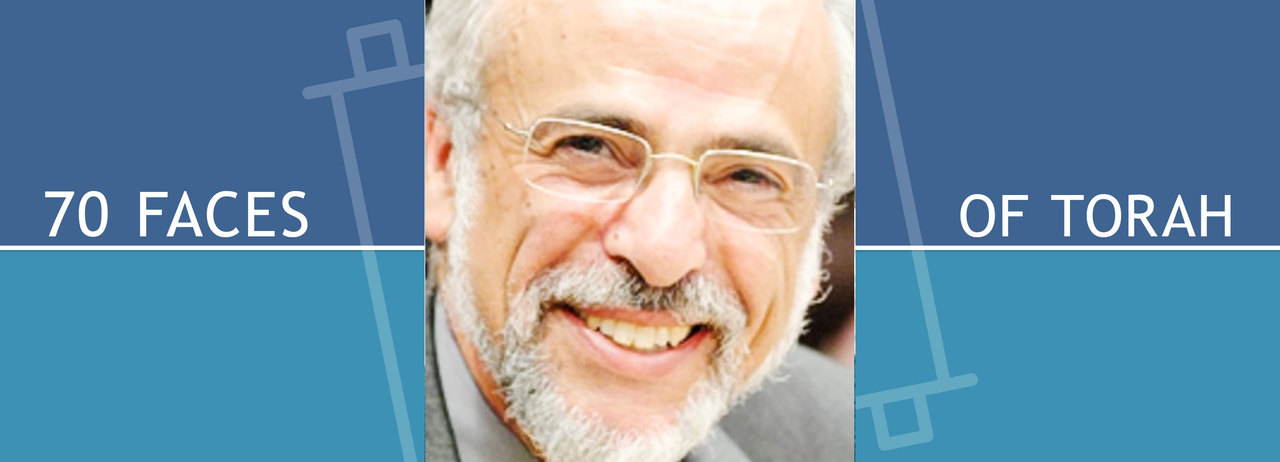Leviticus Rekindling the Flame

Emor (Leviticus 21:1–24:23)
In this week’s Torah portion of Emor we find the second reference to what many people think of as a sacred object called in Hebrew ner tamid, often translated into English as “eternal light.”
When Jews hear these two words, we often think of the lamp—often a decorative lamp—by the same name hanging by the eastern wall in synagogue sanctuaries throughout the world. This light is perpetually lit, symbolizing God’s eternal presence. But that is not the full story of the origins of this ritual item.
In this week’s portion, there is a lengthy set of instructions for how the priests are to carry out their divine service in the mishkan, the portable desert sanctuary. This includes the lighting of the lamps in the lampstand, known as the menorah. “Command the Israelite people to take for yourself clear oil of beaten olives for lighting, for kindling lamps regularly.” The last three words in the Hebrew original, leha’alot ner tamid, mean “for kindling lamps regularly,” not “for kindling an eternal light,” as we commonly interpret the phrase today. In this context, the word tamid is not an adjective (“eternal”) but an adverb (“regularly”).
This is how the medieval scholars known as the Masoretes read this text. These sages created the system of cantillation we use to this very day—the symbolic marks in our Bible that indicate not only how to chant the words of the Torah, but also how to punctuate them. Without getting overly technical, if tamid had been an adjective modifying ner (“eternal light”) it would have been punctuated with merekha, thus grouping the two words together. But the word ner is actually punctuated with tippeha, indicating that it is separated from tamid. Thus, the Masoretic reading of leha’alot ner tamid is “for kindling lamps regularly.”
If that is the case, why are these words so often mistranslated?
Let’s go back a few verses to Leviticus 6:6, where it states, “A perpetual fire on the altar shall be kept burning, not to go out.” So there was an eternal light, but it wasn’t a lamp, it wasn’t the menorah—it was a fire on the altar, esh tamid, from which the lamps would be kindled each and every day. And it was never to be extinguished (lo tikhbe).
Does this distinction have any relevance for us today?
The desert sanctuary was eventually replaced by the Jerusalem Temple (Bet Ha-mikdash), and then by the synagogue, which has been called a mikdash me’at, “minor temple.” The practice of hanging an “eternal light” in our synagogues, a custom that emerged some four centuries ago, conveys the powerful sentiment that God’s presence is both eternal and inextinguishable. We can also find symbolic meaning in the original sense of leha’alot ner tamid—to kindle lamps unfailingly, regularly, day after day. God’s presence is not to be taken for granted; it needs to be acknowledged in a heartfelt manner. It is for this reason that our sages (Pirkey Avot 2:13) warned us not to let our prayers become mere rote recitation, what they called keva. Our connection with the Divine must be renewed daily, continuously.
Further, every morning in our prayers we state that God “lovingly renews creation daily, continuously.” This serves as an invitation to us to look at the world through fresh eyes each morning as darkness yields to light. Just as God renews creation every day, tamid, continuously, it is incumbent on us to reciprocate by seeking out the light and actively working to increase or expand this sacred light—in our hearts, in our homes, and in our communities. Like the biblical priests we must tend carefully to the divine fire, harnessing the energy in our service of the Divine.
The Torah portion of Emor teaches us that we must seek out, give praise for, and renew God’s light—tamid!
Joshua Jacobson is founder and director of the Zamir Chorale of Boston. He served for 45 years as professor of music and Director of Choral Activities at Northeastern University. He has guest conducted the Boston Pops Orchestra, the Bulgarian National Symphony and Chorus, the New England Conservatory Orchestra, and the Boston Lyric Opera Company. He is also a visiting professor at Hebrew College, where he was awarded the Benjamin Shevach Award for Distinguished Achievement in Jewish Educational Leadership in 1994. This commentary was edited by Rabbi Or Rose.

